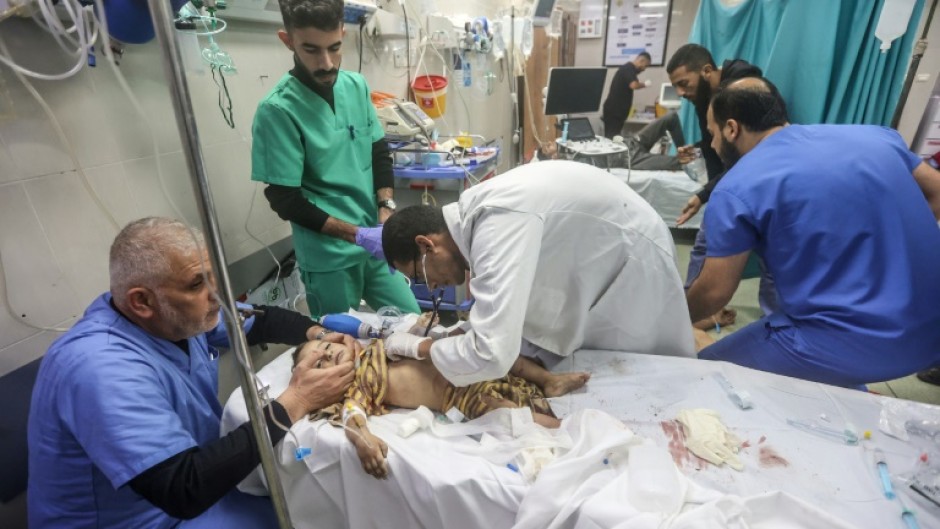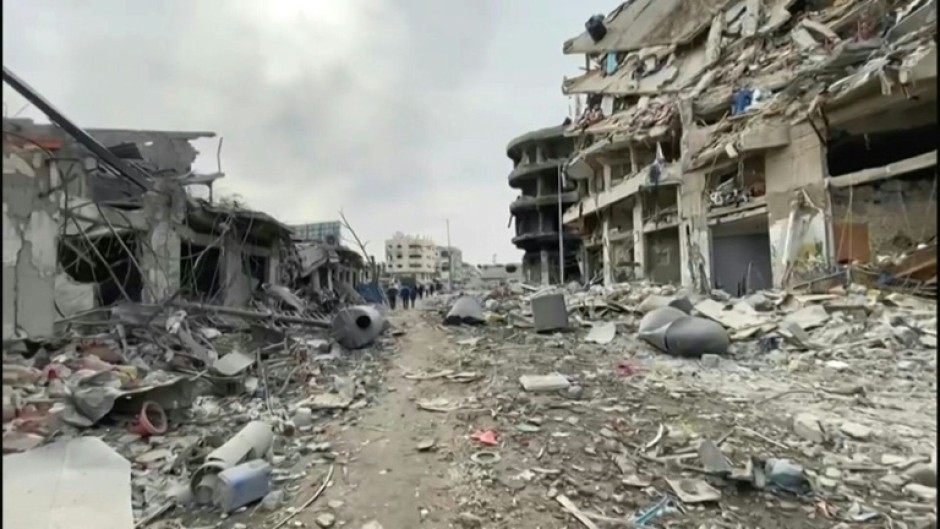There are no longer any functional hospitals in the north of the Gaza Strip, the World Health Organization said Thursday, describing "unbearable" scenes of largely abandoned patients begging for food and water.
The UN health agency said it had led missions to two badly damaged hospitals, Al-Shifa and Al-Ahli, in the north of the Palestinian territory on Wednesday.
"Our staff are running out of words to describe the beyond catastrophic situation facing remaining patients and health workers," said Richard Peeperkorn, the WHO representative for the occupied Palestinian territory.
His comment came amid increasingly frantic diplomatic efforts to secure a pause in the war that Hamas says has already claimed 20,000 lives in Gaza, 70 percent of them women and children.
The war began when Hamas attacked Israel on October 7, killing around 1,140 people, mostly civilians, and abducting about 250, according to an AFP tally based on Israeli figures.
WHO has already described Al-Shifa, the largest hospital in Gaza which last month was the focus of an extended Israeli army operation and has been devastated by Israeli bombardments, as "a blood bath".
The smaller Al-Ahli hospital had since become the only place where surgeries were possible in the north, but its director said it had stopped operating on Tuesday after being stormed by the Israeli army.
- Dying 'slowly and painfully' -
The WHO-led mission revealed that Al Ahli, which just two days ago was "overwhelmed with patients needing emergency care", was now "a shell of a hospital", Peeperkorn told reporters in Geneva via video link from Jerusalem.
"There are no operating theatres anymore due to the lack of fuel, power, medical supplies and health workers, including surgeons and other specialists," he added.
"It has completely stopped functioning."
Of Gaza's original 36 hospitals, only nine are now partially functional, all of them in the south.
"There are no functional hospitals left in the north."
Hospitals, protected under international humanitarian law, have repeatedly been hit by Israeli strikes in Gaza since the war erupted.
The Israeli military accuses Hamas of having tunnels under hospitals and using the medical facilities as command centres, a charge denied by the Islamist group.
Asked about the charge, Peeperkorn said "we on our missions have not seen anything of this on the ground", adding that WHO was "not in a position to assert how any hospital is being used".
Although Wednesday's mission had aimed to deliver fuel, he said, the lack of security guarantees had meant they could only deliver medical supplies and medicines.
But that was not enough, he said.
"Without fuel, staff, and other essential needs, medicines won't make a difference and all patients will die slowly and painfully."
Al Ahli, he said, still counts around 10 staff striving to provide basic first aid, while around 80 patients are sheltering in a church within the hospital grounds and the orthopaedic section.
- 'Too late' -
Sean Casey, a WHO Emergency Medical Teams coordinator who was on the mission, described "unbelievable conditions".
At Al Ahli, the team had walked through the courtyard, where bodies wrapped in white plastic sheeting piled up, and with automatic gunfire sounding nearby, he told journalists, speaking from Rafah in southern Gaza.
In the church, "we found a really unbearable scene," Casey said, describing around 30 patients, including young children and some with serious trauma wounds begging, not for care but for water.
"At the moment, it is a place where people are waiting to die."
He reiterated the increasingly urgent call for a ceasefire to allow sufficient amounts of aid in and also to evacuate more patients from Gaza.

"We are dealing with starving adults, children... Everywhere we go, people are asking us for food," he said.
"Even in the hospitals, ... people with open, bleeding fractures, they ask for food.
"If that is not an indicator of the desperation, I don't know what is."


